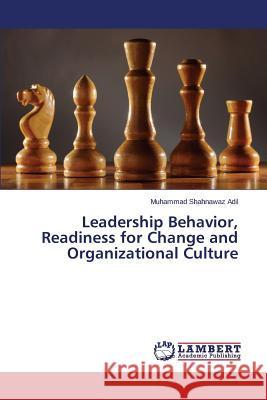Leadership Behavior, Readiness for Change and Organizational Culture » książka
Leadership Behavior, Readiness for Change and Organizational Culture
ISBN-13: 9783659624032 / Angielski / Miękka / 2014 / 52 str.
The main objectives of this book are to empirically analyze the impact of leader's change-promoting behavior on employee's readiness for change and whether this relationship is mediated by organizational culture in the context of a developing country such as Pakistan. A sample of 205 responses is drawn from managers based in Karachi. With the help of advanced multivariate statistical techniques, the results indicate that leader's change-promoting behavior has a significant positive impact on change readiness and this relationship is partially mediated by organizational culture in Karachi. The findings may be generalized on a larger population in Pakistan. The study supports the theory of one of the six conceptual formations of change readiness which refers it to as an employee's capacity to change. Therefore, managers should clearly advocate the desired change with the help of their own change-prompting behavior as well as establishing a trusting culture in their organization. Both limitations and areas for future research in the context of Pakistan are also discussed.
The main objectives of this book are to empirically analyze the impact of leaders change-promoting behavior on employees readiness for change and whether this relationship is mediated by organizational culture in the context of a developing country such as Pakistan. A sample of 205 responses is drawn from managers based in Karachi. With the help of advanced multivariate statistical techniques, the results indicate that leaders change-promoting behavior has a significant positive impact on change readiness and this relationship is partially mediated by organizational culture in Karachi. The findings may be generalized on a larger population in Pakistan. The study supports the theory of one of the six conceptual formations of change readiness which refers it to as an employees capacity to change. Therefore, managers should clearly advocate the desired change with the help of their own change-prompting behavior as well as establishing a trusting culture in their organization. Both limitations and areas for future research in the context of Pakistan are also discussed.











